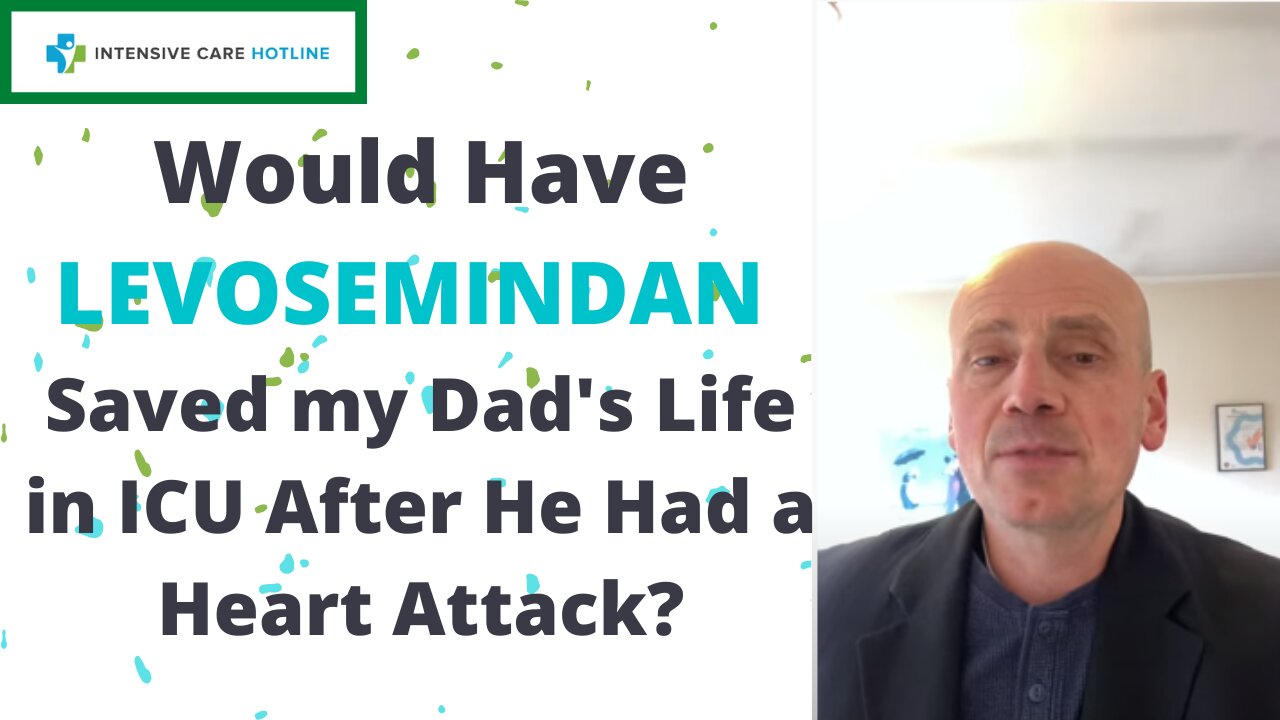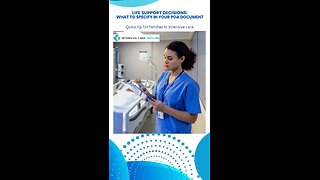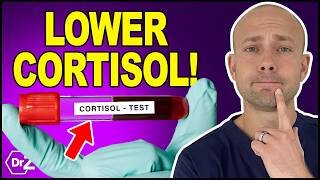Premium Only Content

Would have Levosemindan saved my Dad's life in ICU after he had a heart attack?
Quick tip for families in ICU:Would have Levosemindan saved my Dad's life in ICU after he had a heart attack?
Book your free 15 minute phone consultation here
http://intensivecarehotline.com/scheduling-appointment/
Call directly 24/7
+1 415-915-0090 USA/Canada
+44 118 324 3018 UK
+6141 094 2230 Australia
Email [email protected]
Get 1:1 consulting and advocacy
1:1 phone counselling
http://intensivecarehotline.com/one-on-one-counselling/
Become a member for families of critically ill Patients in Intensive Care
https://intensivecarehotline.com/intensivecaresupport-org-membership/
Immediate action steps http://intensivecarehotline.com/take-control-take-charge/immediate-action-steps/
https://intensivecareathome.com
And if you need a medical record review , click on the link and we can help you with reviewing your loved one’s medical records while they’re in ICU.
https://intensivecarehotline.thrivecart.com/review-of-medical-records/
Hi, it’s Patrik Hutzel from intensivecarehotline.com with another quick tip for families in intensive care.
Now, today’s tip is about a case study where different treatments could have possibly led to different outcomes. And I will break it down for you so that you can understand what you need to look for if your loved one, for example, is in a similar situation.
Now, first off, give the video a thumbs up, share it with your friends and families, and subscribe to my YouTube channel for regular updates for families in intensive care. I’d really appreciate your support and you help support the channel so that more families in intensive care can get help.
So, let’s look at today’s case study. So, we were working with a client a few weeks ago who had their 80-year-old father in intensive care with a massive heart attack. And the ICU was not putting their best foot forward at the time because they thought the client is old and that if he was to survive, he wouldn’t have any quality of life anyway, and therefore they were not putting their best foot forward. We called them out fairly early on. We were telling the family what should be happening? What treatment the client should be happening? What I’ve seen over the years.
I’ve worked in intensive care for over 20 years in three different countries. And I have worked in intensive care as a nurse unit manager for over five years, and I’ve been professionally consulting and advocating for families in intensive care for the last nine years. So, I see, and I have seen my fair share of what treatment can be offered, in ICU and what is appropriate and what isn’t.
So, with the heart attack the client had, and he also had a poor ejection fraction, which means the contractility of the heart was impaired due to the heart attack he sustained that made it difficult for him to get off the ventilator, which means he was in an induced coma for longer than necessary.
For example, if they had given the right treatment. For example, levosimendan is a treatment that works on the contractility of the heart, especially after a heart attack. When contractility of the heart is poor, levosimendan is one of those drugs that can improve contractility. And if contractility had improved early on, he would’ve had a higher chance of being weaned off the ventilator, of being weaned off sedation, potentially having a tracheostomy earlier or not needing a tracheostomy at all, because he was on minimal ventilation settings when we were working with a client.
So, therefore, the ideal scenario would’ve been levosimendan given early on top of the dobutamine, he’s had a milrinone. And then they could have minimized or stopped sedation, and weaned him off the ventilator. He was already breathing on CPAP (continuous positive airway pressure) and pressure support, but on high-pressure support levels. So, he was not quite ready for extubation yet. But with contractility improving, if he had levosimendan, then he could have been weaned off the ventilator, extubated, and avoided tracheostomy, and hopefully, he could have left ICU then.
What happened in this situation though, is the ICU was refusing the levosimendan. He had to be kept in an induced coma with sedatives and opiates, which then eventually led to bowel obstruction and ischemic bowels. And then he became septic, and he died within less than 24 to 48 hours after the sepsis was diagnosed.
And, he ended up on numerous inotropes such as noradrenaline and vasopressin, and they were all maxed out. So, there was no chance to save his life after he had the bowel obstruction. So, it’s really critically important for any family in intensive care to ask the right questions...
-
 0:55
0:55
Intensive Care Hotline
3 days agoLife Support Decisions: What to Specify in Your POA Document
161 -
 2:08:06
2:08:06
The Robert Scott Bell Show
4 hours agoMike Adams, Brian Hooker, Live From Brighteon Studios in Austin Texas, Kids Triple Vaccinated, Blood Sugar and Autism, Candy Fed to Cows, Nutrition Reform - The RSB Show 11-7-25
30.8K1 -
 LIVE
LIVE
GritsGG
3 hours ago#1 Most Warzone Wins 3943+!
27 watching -
 1:15:58
1:15:58
DeVory Darkins
5 hours agoLIVE NOW: Democrats SABOTAGE GOP effort to reopen Government
108K57 -
 1:21:21
1:21:21
Tucker Carlson
4 hours agoThe Global War on Christianity Just Got a Whole Lot Worse, and Ted Cruz Doesn’t Care
63.2K261 -
 10:50
10:50
Dr. Nick Zyrowski
2 days agoDoctors Got It Wrong! This LOWERS CORTISOL In Minutes!
27.7K4 -
 24:14
24:14
Verified Investing
2 days agoBiggest Trade As AI Bubble Begins To Burst, Bitcoin Flushes Through 100K And Gold Set To Fall
23.2K -
 1:12:28
1:12:28
Sean Unpaved
5 hours agoAB's Dubai Drama: Extradited & Exposed + NFL Week 10 Locks & CFB Week 11 Upsets
29.9K -
 2:06:08
2:06:08
The Culture War with Tim Pool
7 hours agoDemocrats Elect Man Who Wants To Kill Conservatives, Time For An Exorcism | The Culture War Podcast
134K128 -
 1:36:52
1:36:52
Steven Crowder
8 hours agoMamdani's Anti-White Victory Must Be America's Wake Up Call
371K417